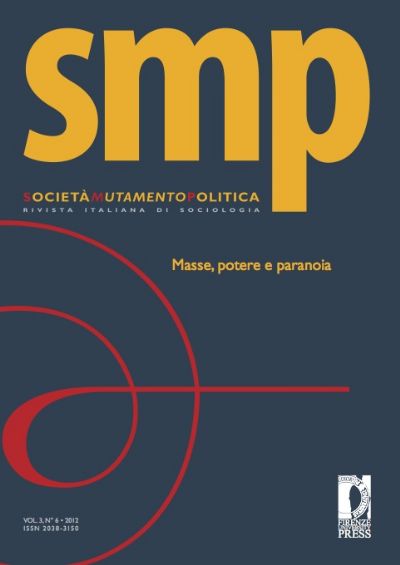Although it is often portrayed as a vague – or even empty – concept, sustainability has helped framing the multidimensional and highly interdependent issues that represent the crucial challenges of our time. The relationships between climate crisis and human migration, the effect of ecological transitions on inequalities, and the impact of biodiversity losses on the economic system are examples of the fundamental themes evoked by the word sustainability. Each of these themes, among the many that could be mentioned, affects a variety of (social and ecological) sub-systems and actors, and is intrinsically relational and transcalar.
Several interdisciplinary approaches have tried to devise a comprehensive framework for governing these issues and steering social relations through/towards sustainability (see inter alia Burch et al. 2019; Steffen et al. 2015; Biermann et al. 2017). Despite these valuable contributions to the understanding of sustainability governance, the current debate on the political and institutional dimensions of sustainability seems to be mired in the same “depoliticized deadlock” which characterizes the debate around the politics of the Anthropocene (Swyngedouw & Ernstson 2018). This post-political attitude can be preliminarily described as a tendency towards understanding social change as a technomanagerial issue, ignoring power unbalance in favour of a non-conflictual representation of social relations, and reducing political issues to pur ecognitive problems (Blühdorn 2022).
We think that political sociology can contribute to reassert the role of “the political” in the conceptual constellation of sustainability. Political sociology is, for example, wellsuited to investigate the long- term institutional configurations and party politics which may enable a society-wide transition to sustainability, as well as the mechanisms of political participation best suited to solve the tough trade- offs it entails.It may help to satisfactorily explore the links between social classes, groups and identities and the support for radical or moderate sustainable measures, as well as the circumstances under which this support varies in the different national and local contexts. Sociopolitical studies can shed a light on role of industrial interest groups as sponsors of right-wing parties and think tanks which endorse a weak environmental agenda and are sceptic of climate change.
The special issue would like to demonstrate the importance of sustainability as a research topic for contemporary political sociology and, vice versa, the meaningfulness of socio-political research for improving our understanding of sustainability issues. This does not mean, though, that we are advocating for a partial, purely specialistic, point of view.
We think that dialogues and hybridity between different disciplines is essential to define the place political sociology may have in this debate. For example, collaborating with political ecology and political economy scholars seems essential for understanding the specificity of the sociological viewpoint among the social sciences.Furthermore, the foundational problem related to sustainability– namely, the balanced relationship between societies and their environment – calls for the theoretical insight of the classical authors in sociology and anthropology.
The special issue is welcoming both theory-oriented and empirical research. Among the theoretical issues that we hope a socio-political viewpoint will help clarifying there are:
- the (de)politicization of sustainability;
- the relationship between neoliberalism and sustainability;
- how discourses and imaginaries of sustainability intersect the issue of power and hegemony;
- how to imagine a post-sustainability political paradigm for a radical socioenvironmental transformation.
Among the empirical research themes that political sociology can contribute to elucidate there are the relationships between:
- capitalism and sustainable development;
- climate change and migration;
- multilevel governance and sustainability at different scales;
- participation, democracy and sustainable politics;
- policies, public administration and sustainable reforms;
- social movements, “new” political cultures and socio-environmental struggles;
- sustainable transitions and social justice;
- right-wing populism and sustainability.
The special issue will be in English, since we hope to create a space for debate between national and international scholars. 5000-characters abstracts (essential references excluded) should be submitted by 15 November 2023 to all guest editors (edoardo.esposto@uniroma1.it;
giulio.moini@uniroma1.it). Acceptance will be notified at the end of November 2023. Full-length papers are due in May 2024.
Guest Editors:
Edoardo Esposto, Giulio Moini
Department of Social Sciences and Economics, Sapienza Università di Roma
Download the PDF of the Call (ENG)

